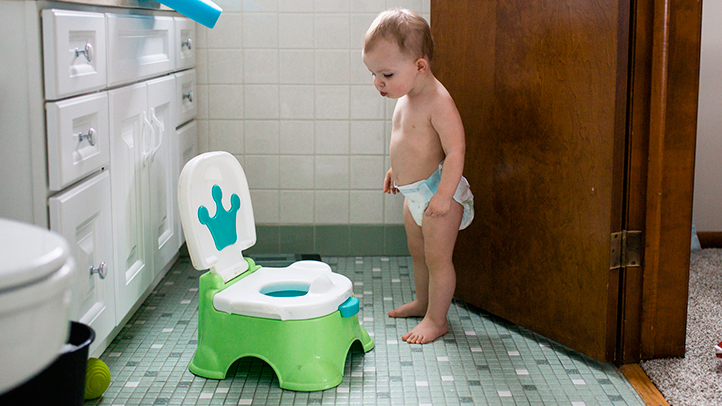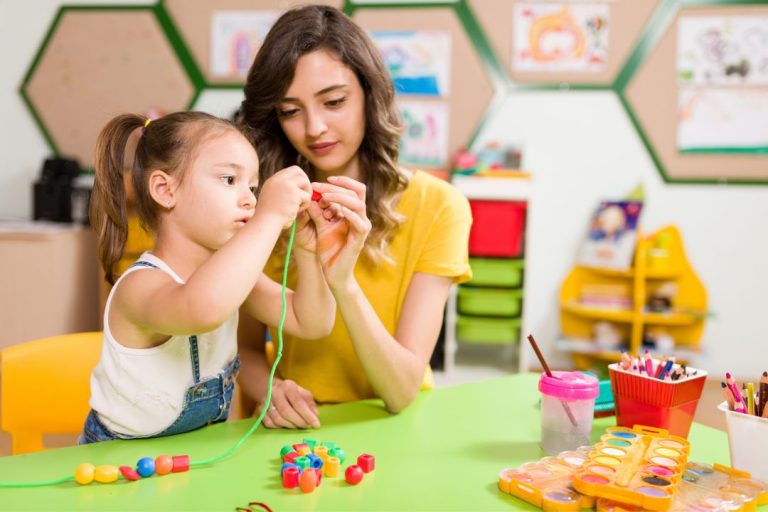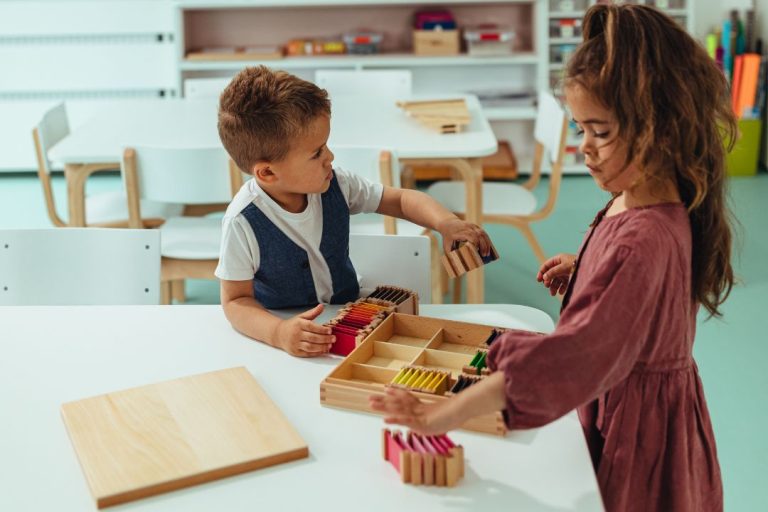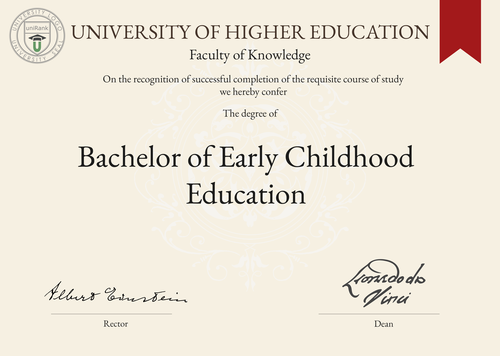What Every Preschooler Needs to Know: Essential Skills for Success

Preschoolers need to learn basic social skills, language development, cognitive abilities, and fine and gross motor skills to prepare them for school and lifelong learning. In addition, they should be exposed to early literacy and numeracy concepts to lay a strong foundation for academic success.
This article will cover the essential knowledge and skills that every preschooler needs to acquire for their development. By focusing on these areas, parents and educators can support the growth and well-being of young children, enabling them to thrive both in and out of the classroom.
So, whether you’re a parent or a caregiver, understanding what preschoolers need to know is crucial for their overall development and future success.
Essential Skills For Preschooler Success
As parents and educators, we all want our preschoolers to succeed and thrive. Building a strong foundation during these early years sets the stage for future learning and development. There are several essential skills that every preschooler should acquire to ensure their success. In this article, we will explore two key areas of development: cognitive development and language abilities.
Cognitive Development
During the preschool years, children experience remarkable growth in their cognitive abilities. This stage is crucial for laying the groundwork for future learning and problem-solving skills. Here are a few specific cognitive skills that preschoolers should develop:
- Identifying colors, shapes, and basic patterns
- Understanding time concepts like yesterday, today, and tomorrow
- Basic problem-solving skills
Identifying colors, shapes, and basic patterns
Preschoolers should be able to identify and differentiate between various colors, shapes, and basic patterns. Through engaging activities and hands-on learning experiences, children can develop visual discrimination skills and enhance their cognitive abilities. Encourage your preschoolers to explore the world around them and point out different colors, shapes, and patterns in everyday objects.
Understanding time concepts like yesterday, today, and tomorrow
Understanding time concepts is an important aspect of cognitive development. Preschoolers should grasp the concepts of yesterday, today, and tomorrow. Introduce these concepts through fun activities that involve storytelling and daily routines. By incorporating these concepts into their daily lives, children develop a sense of time and improve their cognitive skills.
Basic problem-solving skills
Problem-solving skills are crucial for preschoolers as they navigate through various challenges and tasks. Encourage your child to engage in puzzles, games, and problem-solving activities that promote critical thinking and decision-making skills. By providing opportunities for problem-solving, you are helping your preschooler develop a growth mindset and fostering their cognitive development.
Language Abilities
Another crucial area of development for preschoolers is language abilities. Strong language skills lay the foundation for effective communication, reading, and comprehension. Here are a few language abilities every preschooler should develop:
- Vocabulary and phrase-building
- Simple reading and comprehension
- Communicating needs and feelings effectively
Vocabulary and phrase-building
Preschoolers should have a growing vocabulary and the ability to build simple phrases and sentences. Encourage your child to engage in conversations, read books together, and provide opportunities for them to express themselves using new words and phrases. By expanding their vocabulary and language skills, preschoolers enhance their communication abilities and set the stage for future reading and comprehension.
Simple reading and comprehension
Introducing preschoolers to the world of reading and comprehension is essential for their overall language development. Encourage your child to explore age-appropriate books, read together, and ask questions that promote comprehension. As they develop early reading skills, preschoolers enhance their cognitive abilities and pave the way for future academic success.
Communicating needs and feelings effectively
Effective communication is a vital skill that preschoolers need to develop. Encourage your child to express their needs, feelings, and thoughts using words. Teach them appropriate ways to communicate their emotions and provide a safe and nurturing environment for them to express themselves. By nurturing their communication abilities, preschoolers develop strong social skills and build healthy relationships.
By focusing on cognitive development and language abilities, we can ensure our preschoolers are equipped with the essential skills they need to succeed. With a strong foundation in these areas, children can confidently embark on their educational journey and thrive in various aspects of their lives.
Building Social And Emotional Skills
Developing strong social and emotional skills is crucial for preschoolers as it lays the foundation for their future interactions and relationships. It goes beyond learning academic knowledge and helps them grow into empathetic, well-rounded individuals. In this blog post, we will explore three key areas that are essential for building social and emotional skills in preschoolers: Recognizing and expressing emotions, Playing cooperatively with peers, and Understanding and following simple rules.
Recognizing And Expressing Emotions
One of the first steps in building social and emotional skills is helping preschoolers recognize and express their emotions. Being able to identify their feelings allows them to communicate and manage them effectively. Here are a few strategies to aid in this process:
- Encourage open conversations: Create a safe and non-judgmental environment where preschoolers feel comfortable discussing their emotions. This will help them understand that it is okay to express themselves.
- Teach emotional vocabulary: Introduce a wide range of emotions and their corresponding words. This expands their emotional literacy and enables them to articulate their feelings more accurately.
- Model healthy emotional expression: Demonstrate how to express emotions in a constructive manner. Showing preschoolers that it is okay to feel upset or happy and modeling appropriate ways to express these emotions can be invaluable.
Playing Cooperatively With Peers
Playing with peers offers numerous opportunities for preschoolers to develop social skills such as sharing, turn-taking, and cooperation. Here are some tips to encourage cooperative play:
- Encourage teamwork: Provide activities and games that require collaboration and teamwork. This fosters a sense of belonging and teaches preschoolers the value of working together towards a common goal.
- Teach problem-solving skills: Help preschoolers learn how to resolve conflicts and disagreements when they arise during play. This not only promotes cooperation but also enhances their emotional intelligence.
- Offer guidance when needed: Sometimes, preschoolers may struggle with certain social interactions. In such instances, provide gentle guidance and demonstrate appropriate behaviors to help them navigate through challenging situations.
Understanding And Following Simple Rules
Learning to follow rules is an integral part of developing social and emotional skills. It helps preschoolers understand boundaries, respect others, and develop self-discipline. Consider the following strategies:
- Establish clear and age-appropriate rules: Create simple rules that preschoolers can understand and follow. Keep the rules consistent, and explain the reasons behind them.
- Reinforce positive behavior: Recognize and reward preschoolers when they adhere to the rules. Positive reinforcement encourages them to continue displaying appropriate social behaviors.
- Encourage self-regulation: Guide preschoolers to self-monitor their behavior and understand the consequences of their actions. This empowers them to make responsible choices and develop self-control.
Fostering Physical And Motor Development
Physical and motor development play a crucial role in the overall growth and well-being of preschoolers. It is during this stage that children refine their gross and fine motor skills, and develop health and self-care routines. By focusing on these areas, parents and educators can lay a solid foundation for a child’s future physical development. Let’s explore each aspect in more detail:
Gross Motor Skills: Running, Jumping, Throwing
Gross motor skills involve the coordination and control of large muscle groups in the body. These skills are essential for activities that require whole-body movements, such as running, jumping, and throwing. By encouraging preschoolers to engage in these activities, we help them develop strength, balance, and coordination.
Fine Motor Skills: Drawing, Cutting, Writing
Fine motor skills involve the control and coordination of smaller muscles, particularly those in the hands and fingers. These skills are vital for tasks such as drawing, cutting, and writing. By providing preschoolers with opportunities to engage in activities that promote fine motor development, we enable them to gain dexterity, precision, and control over their movements.
Health And Self-care Routines
Health and self-care routines are important aspects of a preschooler’s physical and motor development. By establishing healthy habits early on, we instill values of self-care, hygiene, and overall well-being. These routines may include daily tasks such as washing hands, brushing teeth, eating nutritious meals, getting enough rest, and engaging in physical exercise. Such routines not only promote physical health but also foster independence and responsibility in young children.
Nurturing Creativity And Curiosity
Preschool is a critical time for young children to develop their creativity and curiosity. By encouraging them to engage in imaginative play, explore arts and crafts, and ask questions, parents and educators can help foster a lifelong love for learning.
Engaging In Imaginative Play
Imaginative play is more than just pretending. It is a way for preschoolers to make sense of the world around them and develop their problem-solving skills. Through imaginative play, children create their own stories and scenarios, which allows them to think critically, experiment, and express themselves creatively.
Parents can encourage imaginative play by providing a variety of props and toys that allow for open-ended play. Simple objects like blocks, dolls, and dress-up clothes can become a child’s ticket to a world of make-believe. Whether they are pretending to be superheroes or playing “house,” preschoolers develop their imagination and socio-emotional skills as they engage in imaginative play.
Exploring Arts And Crafts
Arts and crafts activities are an excellent way for preschoolers to explore their creativity and develop fine motor skills. Painting, drawing, coloring, and sculpting all encourage children to think outside the box and experiment with different materials and techniques.
Parents and educators can create a dedicated arts and crafts area, equipped with a variety of materials like crayons, markers, paper, scissors, and glue. By letting preschoolers explore their artistic side, they can develop their sense of color, shape, and texture while visually expressing themselves.
Asking Questions And Seeking New Information
Preschoolers are naturally curious beings. They have an innate desire to learn and understand the world around them. Encouraging children to ask questions and seek new information not only satisfies their curiosity but also helps them develop critical thinking and problem-solving skills.
Parents and educators can foster this curiosity by actively engaging in conversations with preschoolers, encouraging them to ask questions about their environment, and supporting their efforts to find answers. Providing age-appropriate books and resources helps fuel their thirst for knowledge and encourages them to seek out new information.
Preschool is a time of immense growth and development. By nurturing creativity and curiosity through imaginative play, arts and crafts, and encouraging questions, parents, and educators can lay a strong foundation for lifelong learning and success.
Learning Through Play And Interactions
One of the most effective ways for preschoolers to acquire knowledge and essential skills is through play and interactions. By engaging in various activities tailored to their age and developmental stage, children not only have fun but also learn valuable lessons that build the foundation for their future. In this section, we will explore three key aspects of learning through play and interactions: game-based learning, role-playing, and social simulation, and fostering play that teaches sharing and waiting for turns.
What Every Preschooler Needs To Know: Game-based Learning
Game-based learning is a wonderful way to capture the attention of preschoolers while facilitating their learning journey. When children are immersed in games, they naturally become active participants, eagerly exploring and experimenting to achieve their goals. This engaging approach not only enhances their cognitive skills but also promotes problem-solving abilities, critical thinking, and decision-making in a fun and interactive manner.
Through educational games, preschoolers can learn important concepts such as numbers, colors, shapes, and letters. Moreover, game-based learning fosters creativity, imagination, and concentration. By incorporating games that are tailored to their developmental needs, educators and parents can provide an enjoyable environment for children to acquire essential knowledge and skills without them even realizing they are learning.
| Benefits of Game-Based Learning |
|---|
| Enhances cognitive skills |
| Promotes problem-solving and critical thinking |
| Develops decision-making abilities |
| Facilitates learning of important concepts |
| Fosters creativity, imagination, and concentration |
Role-playing And Social Simulation
Another valuable aspect of learning through play is role-playing and social simulation activities. Preschoolers love to engage in pretend play where they can take on different roles and explore different scenarios. These activities provide a platform for children to understand the world around them, develop empathy, and enhance their social skills.
Through role-playing, children can step into the shoes of different professionals such as doctors, teachers, chefs, or even superheroes. This allows them to gain an understanding of various occupations and the roles people play in society. Additionally, role-playing encourages teamwork, communication, and problem-solving as children interact with peers and negotiate roles and scenarios.
Furthermore, social simulation activities enable preschoolers to practice social interactions and develop important life skills. They learn about sharing, taking turns, cooperating, and respecting others’ viewpoints. By participating in role-playing and social simulation, children build a strong foundation for their emotional intelligence and social development.
Encouraging Play That Teaches Sharing And Waiting Turns
Shared experiences and cooperative play are crucial for preschoolers’ social and emotional growth. Encouraging play that teaches sharing and waiting turns helps children develop patience, empathy, and a sense of fairness. These skills are vital for successful social interactions and can positively influence relationships throughout their lives.
By providing opportunities for children to engage in activities that require turn-taking and sharing, both in structured activities and unstructured play, educators and parents cultivate valuable social habits. Through these experiences, preschoolers learn the importance of waiting for their turn, actively listening to others, and understanding the perspectives of their peers.
Games, cooperative projects, and group activities are excellent ways to promote sharing and waiting turns. By fostering an atmosphere of inclusivity and support, preschoolers develop important social skills while fostering meaningful connections with their peers.
Frequently Asked Questions For What Every Preschooler Needs To Know
What a 4-Year-Old Should Know Before Preschool?
A 4-year-old should know basic social skills, such as sharing and taking turns, as well as basic independence skills like using the bathroom and dressing themselves. They should also have some understanding of numbers, letters, colors, and shapes. Pre-school can help develop these skills further.
What Are Preschoolers Supposed To Know?
Preschoolers should know basic social skills, such as sharing and taking turns. They should be able to follow simple instructions, recognize letters and numbers, and express their needs using words. Additionally, they should have basic self-help skills like dressing themselves and using the restroom.
What Is Most Important For Preschoolers To Learn?
Preschoolers should focus on learning essential skills like communication, socialization, and basic literacy.
What Should Kids Know By the End Of Preschool?
By the end of preschool, kids should have a basic understanding of numbers, letters, shapes, and colors. They should also be able to follow simple instructions, communicate their needs and emotions, and engage in cooperative play with their peers.
Conclusion
Finally, it’s crucial to understand that every preschooler needs a solid foundation in their early years. By focusing on key areas such as language development, social skills, and cognitive abilities, parents and educators can help children thrive and succeed in today’s fast-paced world.
By offering a nurturing environment filled with meaningful interactions and stimulating activities, we can empower our little ones to become confident, curious, and well-rounded individuals. So let’s embrace these essential lessons and give our preschoolers the best start possible.

With over 20 years of experience in early childhood education, Jane brings a wealth of knowledge to Classroom Journey. She specializes in play-based learning and has a passion for inclusive education.







21 Comments